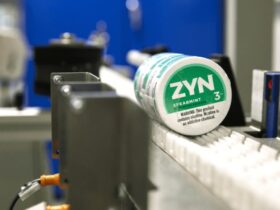In today’s dynamic and competitive business landscape, maintaining a safe and productive work environment is crucial for the success of any organization. One key aspect of ensuring workplace safety and efficiency is the implementation of drug testing policies. This article explores the importance of drug tests in protecting the work environment and various reasons why employers opt for such measures.
1. Upholding Workplace Safety:
Workplace safety is a paramount concern for employers, employees, and regulatory bodies alike. Drug use among employees can compromise safety standards, leading to accidents, injuries, and even fatalities. Industries such as manufacturing, construction, and transportation require a high level of alertness and precision. Drug tests help identify and eliminate employees under the influence, thereby reducing the risk of workplace accidents and promoting a safer work environment.
2. Boosting Productivity and Performance
A drug-free workplace is essential for maintaining optimal productivity and performance levels. Substance abuse can significantly impair an employee’s cognitive abilities, focus, and decision-making skills. By implementing drug tests, employers can identify individuals with substance abuse issues and provide them with the necessary support to overcome their challenges. This proactive approach not only safeguards the work environment but also contributes to overall workforce productivity.
3. Legal Compliance and Liability Reduction
Many industries are subject to strict regulatory standards regarding workplace safety and employee well-being. Implementing drug testing policies ensures that employers comply with these regulations, reducing the risk of legal consequences and liabilities. In the event of an accident or incident, having a comprehensive drug testing program in place can serve as a defense mechanism for the organization, demonstrating due diligence in maintaining a drug-free workplace.
4. Fostering a Culture of Accountability
A workplace that prioritizes drug testing fosters a culture of accountability among its employees. Knowing that random drug tests are a possibility encourages individuals to make responsible choices and discourages substance abuse. This, in turn, contributes to a positive and accountable work culture, where employees are aware of the impact of their actions on their colleagues and the organization as a whole.
5. Preserving Reputation and Employee Morale
An organization’s reputation is closely tied to the behavior and actions of its employees. Instances of drug-related incidents can tarnish an organization’s image and erode the trust of clients, partners, and stakeholders. By implementing drug tests, employers send a clear message that they are committed to maintaining a reputable and responsible work environment. This commitment not only preserves the organization’s image but also boosts employee morale, as individuals feel secure knowing that their workplace prioritizes their well-being.
6. Identifying Substance Abuse Issues Early On
Drug tests serve as an early detection mechanism for identifying substance abuse issues among employees. Early intervention is key to addressing these issues effectively. Employers can provide support and resources to employees struggling with substance abuse problems, enabling them to seek help and undergo rehabilitation. Identifying and addressing these issues early not only benefits the affected employees but also prevents potential disruptions and challenges within the workplace.
7. Mitigating Employee Turnover and Recruitment Costs
Substance abuse can contribute to high turnover rates and increased recruitment costs for organizations. Employees struggling with addiction may exhibit erratic behavior, absenteeism, and poor job performance, leading to a revolving door of staff. Drug testing helps identify individuals facing substance abuse challenges, allowing employers to intervene and support them, ultimately reducing turnover rates and the associated recruitment costs.
Conclusion:
In conclusion, drug tests play a pivotal role in protecting the work environment by upholding safety standards, boosting productivity, ensuring legal compliance, fostering accountability, preserving reputation, and identifying substance abuse issues early on. Employers who prioritize a drug-free workplace contribute not only to the well-being of their employees but also to the overall success and sustainability of their organizations. As businesses navigate the complexities of the modern workplace, understanding the need for drug tests becomes an integral part of safeguarding both the present and future of the work environment.



































